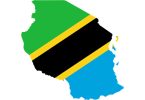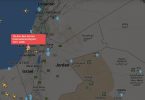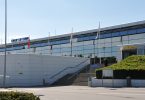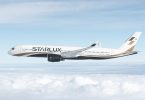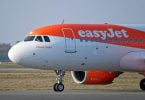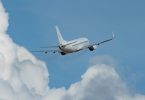Precision Air, once Tanzania’s fastest growing airline, is in financial turmoil and desperately in need of a $32 million bailout package, The Citizen newspaper reports.
The airline’s board chairman, Mr Michael Shirima, told the paper that they were seeking the money from various sources, including the government, to enable it to meet urgent financial obligations that include servicing bank loans and paying aircraft suppliers.
Other sources said the airline had left the government to decide whether it would act as a guarantor for a bank loan or provide funds in exchange for a stake in the troubled carrier.
Mr Shirima, who founded the airline in 1993, admitted that Precision Air was going through tough times because of huge debts accumulated after it ordered seven aircraft worth $136 million from the French-Italian aircraft manufacturer Avions de transport regional (ATR) in 2007.
The debt ballooned because the anticipated cash flow after the company listed on the Dar es Salaam Stock Exchange in 2011 did not materialise.
“We expected pension funds to buy shares but, to our surprise, they didn’t,” Mr Shirima said.
“Our cash flow is now constrained. The audited accounts for 2012 will be out any time from next week and for the first time we are going to post a loss,” he added.
Mr Shirima has a 43 per cent stake in the airline, while Kenya Airways has 41 per cent. The rest of the shares were sold in the initial public offering (IPO) in 2012.
But failure to raise cash through the IPO and other sources is not the sole reason for the financial constraints the airline is facing.
Too ambitious
Mr Shirima said spiralling fuel prices, high taxes and levies and currency fluctuations had also contributed to the airline’s troubles.
“Fuel is hurting everybody in the aviation sector. Fuel constitutes about 40 per cent of operating costs. The problem was compounded by the leasing of three Boeing 777s, which have since been returned to their owners.”
The giant twin-engined jets were leased to serve regional routes between Dar es Salaam and Nairobi, Entebbe, Lusaka, Lubumbashi, Johannesburg and other destinations under an expansion programme the airline unveiled last year.
The aircraft were later withdrawn and returned to their owners after the plan was found to be too ambitious as a financial crisis loomed.
The company, however, continues to fly to Nairobi, Entebbe and Mombasa using its remaining fleet. It also flies to more than a dozen local destinations.
Mr Shirima said Precision was taking a raft of measures to get back in the black.
“The problems we are going through are a wake-up call. We are in the process of putting things right. Recovery measures include seeking a capital injection from other sources other than the shareholders,” he said.
Those approached for assistance include the government which, according to Mr Shirima, had shown positive signs “although as is always the case with governments, the process has been too slow”.
‘Rationalise’
He said without specifying that strategic investors were also being sought from elsewhere.
The board was keen to ensure that the majority of Precision shares would remain in the hands of Tanzanians, Mr Shirima added.
The airline will also continue with the partnership it entered into with Kenya Airways in 2003.
Contrary to earlier expectations, Kenya Airways has failed to inject capital, but retains a 41 per cent stake. Measures to restore the company’s glory hinge on a five-year-strategic plan unveiled in April but whose success depends on cash flows from creditors and shareholders.
“Precision Air may not be the same in the next five years. We plan to expand our fleet to serve international routes,” Mr Shirima said.
Several cost-cutting measures are underway. They include “rationalising” the firm’s workforce of about 700 employees.
“We need an optimum number of staff to propel the company to new heights,” Mr Shirima said.
The airline currently has 10 aircraft. Under the strategic plan, the priority is on single aisle aircraft suited for regional and short and medium-range flights.




